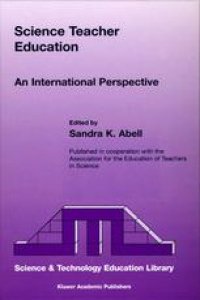
Ebook: Science Teacher Education: An International Perspective
- Tags: Science Education, Teacher Education, Comparative Education
- Series: Science & Technology Education Library 10
- Year: 2000
- Publisher: Springer Netherlands
- Edition: 1
- Language: English
- pdf
Analysis of past developments in teacher education in Pakistan has shown that substantial progress has been made in this field. It has, however, been pointed out that education of science teachers still needs much improvement. At the present, there is an emergent need to meet the shortage of qualified science teachers and at the same time to bring qualitative improvements in the courses offered in teacher education institutions. First, we recommend that the 1-year duration of teacher preparation is grossly inadequate for all teaching courses, and should be lengthened, and the qualifications for entrance be increased. We believe that teaching must be made a graduate profession. For example, the basic qualification of primary school teachers for admission to teacher education institution should be increased. We recommend that PTC should be made a 12 + 2 year program. Similarly, CT, 12 + 3; B. Ed. , 14 + 2; B. S. Ed. , 12 + 4; M. A. Ed. , 14 + 3; and M. Ed. one year after B. Ed. or B. S. Ed. Secondly, we think the quality of instruction in teacher preparation programs should be improved. Most teachers in the teacher preparation institutions use the lecture method most of the time. Prospective teachers behave like passive listeners to their teachers. They do not participate in the teaching/ learning process. Some instructors even dictate their notes to the preservice teachers. When the teachers join schools, they behave the same way.
The authors of the chapters in this volume have witnessed their share of science education reform efforts in their respective countries, some driven by government policies, some by institutional initiatives, and others by the researchers themselves. In each case, science teacher preparation and the continuing education of science teachers are key elements of reform. Collectively, the writers paint a promising picture of science teacher education internationally. Their stories are of change and progress, of commitment and hope. We present the stories in the spirit of capturing history and moving forward to inform science educators world-wide engaged in science teacher education and reform efforts. This volume can help science educators think globally about issues and values in science education, while providing ideas for taking local action.